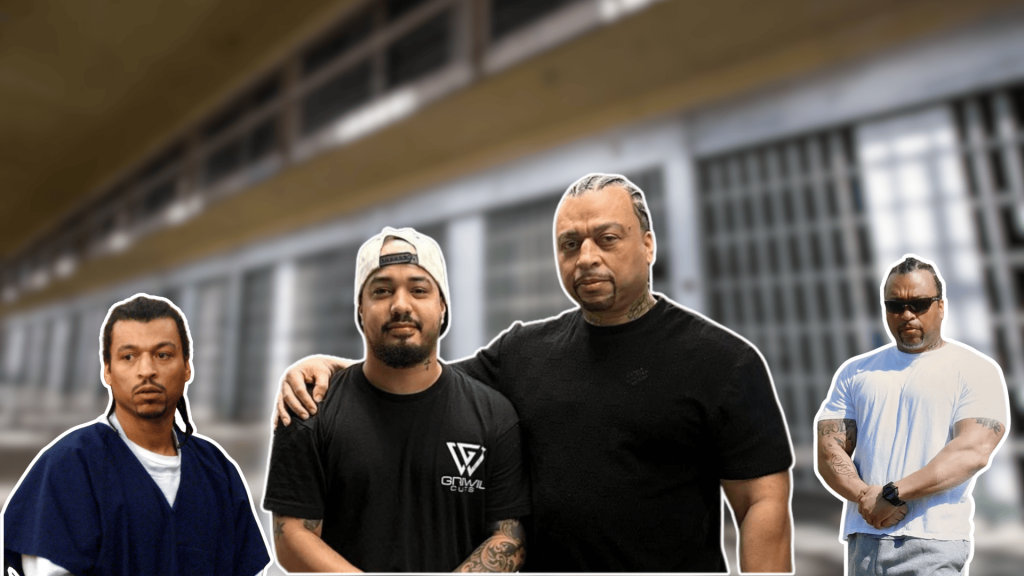The question, is Big Meech out of jail? has dominated social media searches and hip-hop discussions throughout 2024.
Demetrius “Big Meech” Flenory, the infamous co-founder of the Black Mafia Family who once controlled one of America’s largest cocaine trafficking networks, has become a cultural icon whose legal status captivates millions.
After nearly two decades behind bars for running a criminal empire that generated hundreds of millions in profits, his recent transfer to a Miami halfway house has sparked widespread confusion about what “freedom” actually means in the federal system.
While celebrities celebrate and fans speculate, the legal reality tells a more complex story about federal supervision that most people don’t understand.
Is Big Meech Released? Current Custody Status
Based on federal records, Demetrius “Big Meech” Flenory remains under federal supervision as of August 2025.
He transferred from federal prison to a halfway house at RRM Miami, a Residential Reentry Management (RRM) field office, on Tuesday, October 15, 2024, to complete the rest of his sentence.
Flenory’s projected supervised release date is January 27, 2026. His original 30-year sentence began in 2008 with an initial projected release date of 2031.
This was later reduced to 2028, and then to the current January 2026 date, following sentence modifications and reductions granted over recent years.
Federal regulations require Flenory to comply with key supervision conditions:
- Employment and movement restrictions: Must maintain approved employment and cannot leave the facility outside approved timeframes
- Regular supervision: Must report to federal probation officers and submit to random drug and alcohol testing
- Communication and association limits: Subject to monitoring of communications and prohibited from contact with former criminal associates
- Financial oversight: Must disclose all income sources and financial transactions to federal authorities
Violation of any condition may result in immediate return to federal custody.
Big Meech and the Black Mafia Family
The Black Mafia Family was founded in the late 1980s by brothers Demetrius “Big Meech” Flenory and Terry “Southwest T” Flenory in Detroit, Michigan.
The organization expanded into one of the largest cocaine trafficking networks in U.S. history, operating across multiple states and moving hundreds of kilograms of cocaine monthly.
BMF generated hundreds of millions in illegal profits during its peak years and gained significant cultural influence within the hip-hop music and entertainment industries.
Federal agencies, including the DEA, FBI, and IRS, conducted coordinated investigations using wiretaps and financial analysis to build cases against BMF leadership across multiple judicial districts.
BMF’s operations extended beyond drug trafficking to include money laundering through legitimate businesses and entertainment ventures, while maintaining a lavish lifestyle that attracted federal attention and cultural fascination.
In 2005, federal authorities arrested Flenory on charges including conspiracy to distribute controlled substances, money laundering, and continuing criminal enterprise, ultimately resulting in a 30-year federal sentence.
The First Step Act of 2018 later enabled sentence reductions for certain federal drug offenses, allowing courts to reconsider qualifying cases.
Public Reaction to Big Meech Release
News outlets reported extensively on Flenory’s transfer to a halfway house, though coverage varied in accuracy regarding halfway house restrictions.
Many reports simply stated “Big Meech released” without explaining his continued federal supervision status.
Various media personalities and public figures commented through social media platforms, often creating confusion about his actual legal status.
Celebrity posts led many fans to assume complete freedom rather than understanding the restrictions of halfway house placement.
His attorney, Brittany K. Barnett, co-founder of the Buried Alive Project, stated she is “overjoyed” that he is finally free after nearly 20 years behind bars.
“He used his time in prison to focus on personal growth and transformation, and now he has the opportunity to begin a new chapter,” she said. Barnett emphasized broader reform concerns, noting “He’s out, but millions more remain trapped inside — there’s still so much work to be done.”
Big Meech Federal Monitoring
The U.S. Probation Office maintains oversight authority throughout Flenory’s residential reentry period using various monitoring technologies and enforcement measures.
Federal supervision methods and consequences include:
- Electronic location monitoring: GPS tracking devices provide continuous location data to supervision officers
- Scheduled reporting: Regular meetings with probation officers to review compliance status
- Residence inspections: Unscheduled searches of living quarters without prior notice
- Employment verification: Direct employer contact to confirm work attendance and performance
- Substance testing: Random drug and alcohol screening requirements
- Technical violations: Non-compliance can result in increased restrictions or return to federal custody
- New criminal conduct: Any arrests trigger immediate review and potential return to prison
- Administrative sanctions: Authorities may modify supervision terms or housing arrangements
Legal Precedent from Big Meech Case
Flenory’s case may influence how federal courts handle similar large-scale drug trafficking cases. His sentence reduction shows changing attitudes toward certain drug offenses.
| Area | Impact |
|---|---|
| Other BMF Cases | Similar members may seek comparable sentence reductions |
| Defense Strategies | Attorneys can reference Flenory’s successful reduction in similar cases |
| Court Decisions | Each case is still evaluated individually on specific circumstances |
| Sentencing Trends | Recent laws favor rehabilitation over punishment for certain drug offenses |
| Future Policy | The system continues balancing punishment, deterrence, and rehabilitation |
| Judicial Authority | Federal judges retain discretion in applying sentence reductions |
The federal system continues adapting its approach to major drug cases while maintaining public safety and deterrence objectives.
The Bottom Line
Big Meech’s transfer to RRM Miami marks a significant step in one of America’s most high-profile drug cases, but it does not mean complete freedom.
His halfway house status involves strict federal monitoring, employment requirements, and potential return to custody for violations.
The widespread confusion about his release highlights limited public understanding of federal supervision.
As Flenory approaches his January 2026 projected release date, his case continues influencing discussions about criminal justice reform and rehabilitation versus punishment.
Whether viewed as redemption or insufficient justice, Big Meech’s situation demonstrates how the federal system handles high-profile cases involving organized crime and cultural influence.







































